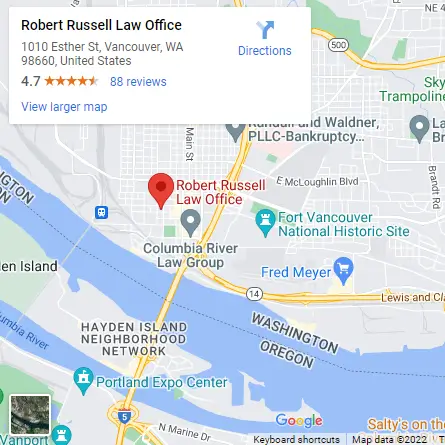
What will happen to your hard-earned properties and assets when you die? It is important to make sure that all our assets, bank accounts, finances, life insurance policy benefits, real estate properties, retirement accounts, and other investments will be left in good hands after death. As such, we need to create a last will and testament or a trust beforehand. Wills and trusts are both estate planning tools that can help ensure that your assets are protected and bequeathed to your chosen heirs. A credible Vancouver Estate Planning Attorney can help you understand the importance of wills and trusts in estate planning. One of the best things you can do for your family is to plan ahead of time.
To help you understand the importance of wills and trusts, this article will answer the following questions:
- What is a Will?
- What is a Trust?
- What are the Differences Between Wills and Trusts?
- What is the Role of an Estate Planning Attorney?
What is a Will?
 A will is a written legal document which states how you wish to distribute your assets when you pass away. The author of a will is called the testator. When establishing a will, you’ll assign an executor to manage estate affairs when you die. After your death, your executor will pay any debts and distribute your assets according to the terms of your will.
A will is a written legal document which states how you wish to distribute your assets when you pass away. The author of a will is called the testator. When establishing a will, you’ll assign an executor to manage estate affairs when you die. After your death, your executor will pay any debts and distribute your assets according to the terms of your will.
The requirements of a formal will may vary depending on the jurisdiction. A properly executed will remains effective unless it is revoked by a valid subsequent will. Wills can be altered via a “codicil” without the need for the document to be entirely rewritten.
It is mentally challenging to visualize one’s death. However, creating a will ahead of time will give you peace of mind knowing that you will be able to equally distribute your assets to your family. Your will is the key to ensure that everything that you will leave behind when you die will be managed and handled accordingly. Wills allow you to:
- Name guardians for minor children or pets
- Designate beneficiaries of your assets
- Specify final arrangements (funeral)
After death, the court will examine your testamentary will, which is a legal document used to transfer your estate, appoint guardians for minor children, select will executors, and sometimes set up trusts for your survivors.
A will can be effective in transferring an estate and other legal proceedings after death, but there are drawbacks that you should be aware of. Your estate will become part of the public record and anything left by a will must go through a court-supervised process called “probate”. This legal process has a reputation for being drawn-out and expensive.
What is a Trust?
A trust is another method of estate transfer that involves a fiduciary relationship. It allows you to give authority to another party to handle your assets for your beneficiaries. There are various functions and types of trusts: living and testamentary.
A will can be used to create a testamentary trust. You can also create a trust for the primary purpose of avoiding probate court and reducing the expenses, which is called a revocable living trust. A living trust allows you to appoint a trustee to manage and distribute trust property both while you are alive and after your death, and this takes the place of the executor working with the probate court. A probate court is the judicial system section responsible for settling wills, trusts, conservatorships, and guardianships.
It is called a living trust because it is created while the trustor is still alive. It is revocable since it may be subject to change during the life of the trustor. The trustor maintains “ownership” of the property held by the trust while the trustor is alive.
A trust is a bit more complicated, but it can provide benefits. It offers greater control over when and how your assets will be distributed. It applies to any assets held in trust. However, keep in mind that you cannot designate guardianship for minor children in a trust. This is one of the common reasons why some people use both wills and trusts together.
What are the Differences Between Wills and Trusts?
Wills and trusts are both considered effective tools in estate planning. However, there are key differences to consider before deciding which one works best for your situation:
Date of Effectivity
A will does not take effect until after you die, whereas a living trust is active once it is created and funded. This means that a trust can protect and manage your assets if you become mentally incapacitated, something a will is unable to do.
Probate and Privacy
With or without a will, your estate will go through probate. In most states, the probate process can be a lengthy, drawn-out process that involves expensive costs. Probated wills become public record, which means that anyone can check out the details of your will. If you value privacy for your personal financial affairs, a living trust could be your best option. Avoiding probate could potentially result in a smoother transition of assets to your chosen successor.
Complexity and Cost
Trusts are more complex and costly to prepare compared to wills. It requires more paperwork and documentation. For a living trust to work, it needs to be funded. This means that your property, assets, and accounts (investments, retirement, banking) must be properly titled to be in the name of the trust. However, avoiding probate down the road can offset the cost to set up a living trust. A qualified Vancouver Estate Planning Attorney can guide you on how to fund the trust and name the beneficiaries for each asset to be distributed.
One of the downsides of dealing with assets held within a living trust is the difficulty to refinance the property. Some lenders just review the living trust agreement, while others may make the grantor remove the property from the trust during the refinancing process.
What is the Role of an Estate Planning Attorney?
An estate plan allows you to provide for your family’s future upon your death. Estate planning is the process of putting your wishes for incapacity and death into writing. This can be overwhelming, emotional, and stressful. Given the complex nature of estate planning, calling our Vancouver Estate Planning law firm can make things less complicated. Our lawyers at Robert Russell Law Office will ensure that your assets are well-distributed according to your wishes. We will help you protect your family and your legacy for the future.






